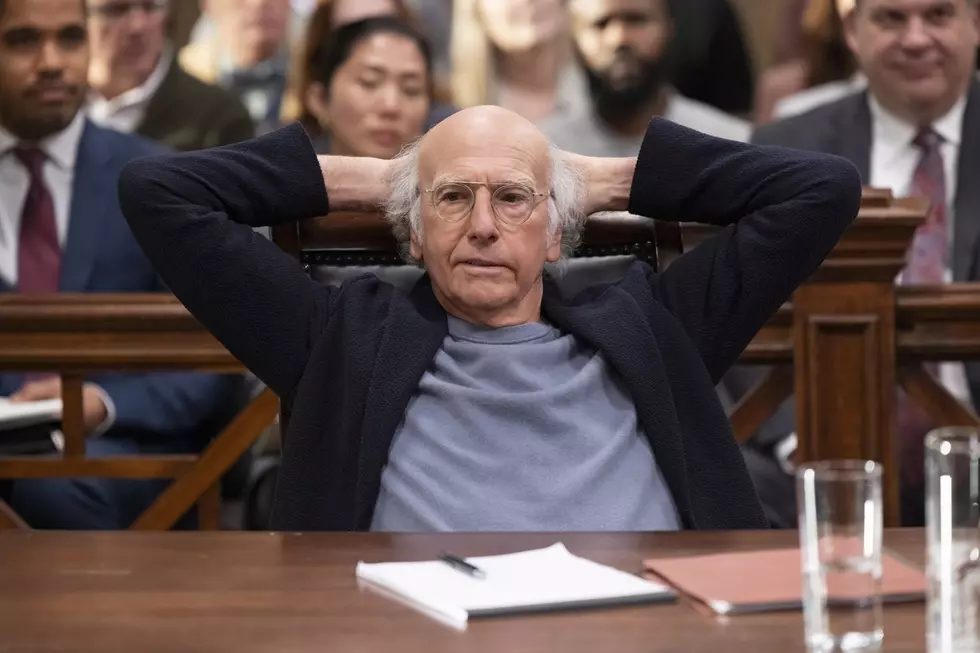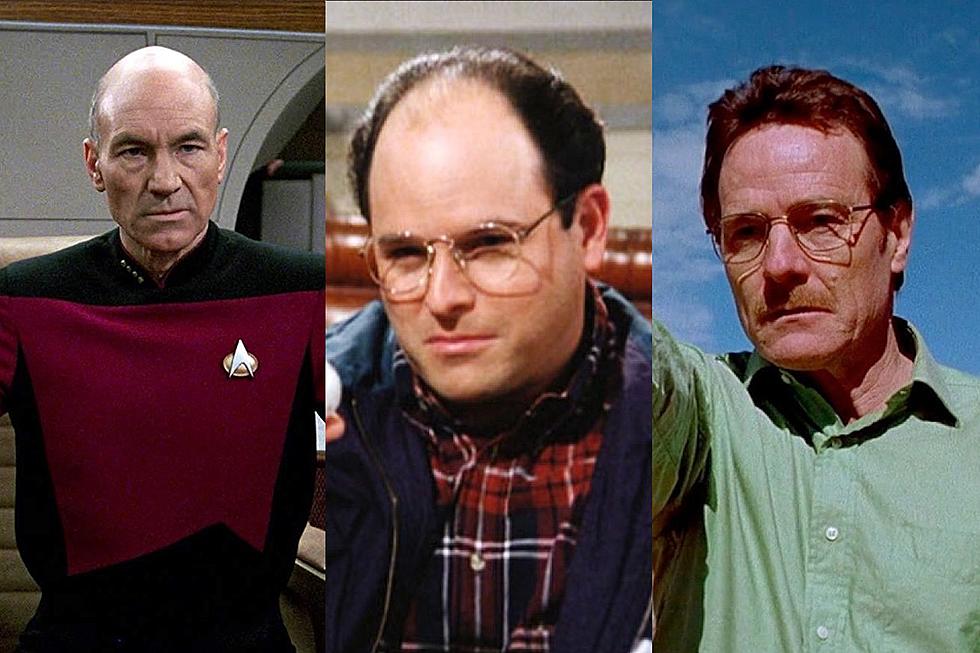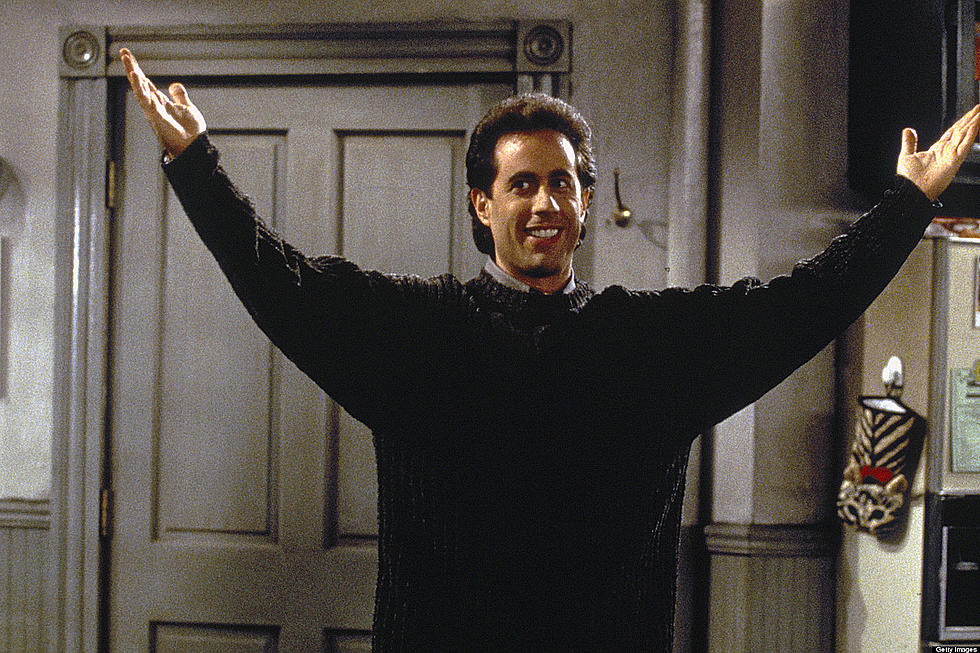
The Lost Episode Of ‘Seinfeld’ That No One Has Ever Seen (and Never Will)
During the second season of ‘Seinfeld’ – on Wednesday, December 12, 1990, to be more exact – the cast sat down to read through the script for what would be the fourth episode of the season and only the ninth episode of a series that would go on to produce a total of 180 episodes. The episode was titled ‘The Bet.’ Sets for the episode had been built. Guest characters had been cast. ‘The Bet’ would never film nor air.
The episode actually featured two bets as part of its plot. The subplot centered around Kramer’s (Michael Richards) claims that, on a flight back from Puerto Rico, he had slept with the flight attendant while in transit. George Costanza (Jason Alexander) doubted Kramer’s story, while Jerry (Jerry Seinfeld) believed it to be true. The story’s validity would determine who won a bet between George and Jerry. During the course of this episode, Kramer’s first name would be revealed -- instead of when it was eventually revealed in the series’ sixth season (we’ll get to that, and his name wasn't always Cosmo).
The other bet, which was the main focus of the episode, was whether or not Elaine (Julia Louis-Dreyfus) would purchase a gun for protection. During the episode, Kramer would take Elaine to meet a man named Mo Korn (played by Ernie Sabella, best known by ‘Seinfeld’ fans as the naked man on the subway) who still lives with his mother, and who also happens to be a black market gun salesman.
We don't want to do this episode. That cast and I do not want to do this.
‘The Bet’ was written by Larry Charles (who directed ‘Borat’ and, most recently, ‘The Dictator’) and was based on fellow-‘Seinfeld’ writer Elaine Pope’s real life experience. “I can't remember if she was contemplating buying a gun or whether she had already bought a gun,” says Charles today, “but she felt very justified in buying the gun and would defend that position. And it was also at a time when that was a subject that was finding its way into the media: women buying guns. And I thought that was kind of fascinating. And I think it was as simple as me wondering, What if Elaine bought a gun?”
In the episode, Elaine buying a gun leads to an exchange in which she jokes about shooting herself in the head, then references “the Kennedy,” mimicking the bullet entry point of the assassinated president. This line became a sticking point for the cast and, led by Julia Louis-Dreyfus, they began to balk at the idea of filming the episode at all.
Also balking at the premise was the episode’s director, Tom Cherones -- who would direct 81 episodes of ‘Seinfeld’ before the series ended. Cherones, now 75, remembers, “As I recall, there was some reference to make a joke called 'a Kennedy.' And that offended me. And I guess it offended the cast as well.” Cherones also remembers the cast taking a break from the read-through, and when he returned, there had been a mutiny of sorts. “I was told to go back to the stage and work on the episode, which is what normally happens,” Cherones remembers. “I went back to the stage and the actors looked at me and said, ‘We don't want to do this episode.’ I said, ‘I agree with you. Guns are not funny, no matter what you say.’ I walked back before the network guys left and I said, ‘We don't want to do this episode. That cast and I do not want to do this.’"
“It was an episode that was going to be shot,” says Charles, “but at a certain point, the critical mass started moving almost immediately from when it was brought to be an episode. The people around us thought it wasn't the right episode at the right time.”
Again, this was only the ninth episode of ‘Seinfeld’ that was ever put into production. At the time, it was far from a ratings hit and the show was not just struggling for its identity, but struggling for its life. “It was barely hanging on,” remembers Charles. “This was one where it was maybe too much too soon.”
If ‘Seinfeld’ weren’t still in its infancy, would that episode have survived if it had been written, say, in the show’s fifth or sixth season? Charles thinks so, “Down the line, when we were golden and doing great in the ratings and we could tackle any subject that we wanted to, I'm sure some version of this episode could have been done.”
Cherones, for his part, disagrees, “I was a gunnery officer in the United States Navy. Guns aren't funny.”
Speaking to both Charles and Cherones, it’s remarkable how much emotion both of these men still have for an episode of television that never aired over two decades ago. And it’s interesting to listen to two whip-smart comedy minds (albeit from a generation apart), talents who both helped create arguably the greatest television sitcom of all time, vehemently disagree over this particular episode.
Larry Charles: “There were no ideas that were off limits.”
Tom Cherones: “You can't make a funny show about guns, in my opinion.”
Larry Charles: “I don't agree with that, though. I respect his opinion, but I don't think there's anything that's not funny, necessarily.”
Could the episode have made a statement about gun use or gun control?
Tom Cherones: “Well, I don't know about that. It was a comedy show. We weren't trying to make statements.”
Larry Charles: “It's all a question of how you handle it. From 'Pulp Fiction,' 'Blazing Saddles,' you can draw from all kinds of sources where guns are used for comedic effect.”
Tom Cherones: “We didn't have the gun violence then that we do now. Now, nobody would do it, I predict. Because now we know guns aren't funny … I'm sure there was no malice on his part.”
Larry Charles: “If it were on 'Louie,' you wouldn't think twice about it … I think 'Louie' has proven and 'Curb Your Enthusiasm' has proven as well that those subjects are worthy of exploration and comedy. I reject the idea that certain subjects should not be touched upon.”
Regardless, the show didn’t air and, obviously, it never will. Larry David and Jerry Seinfeld instead quickly wrote another episode titled ‘The Phone Message,’ centering on George leaving a message on his girlfriend’s answering machine that he regrets, leading to him switching the tape before she hears the message. We will never learn who won both bets...well, that’s not entirely true. Now, Charles doesn’t remember what Elaine eventually decided, “What I do remember is there's almost a 'Taxi Driver' like scene in there, where she goes to the hotel room to meet a guy who was like the guy in 'Taxi Driver' who deals guns. And I think she buys the gun there, but to tell you the truth, in all honestly -- and maybe I blocked it out for psychological reasons -- I don't remember what happened after that.”
But, Charles does confirm that, yes, Kramer did indeed join the mile-high club with his flight attendant on the way back from Puerto Rico so, yes, George did lose that particular bet to Jerry.
Cherones, who directed so many episodes, never encountered another episode that he thought was too controversial to air -- even the infamous ‘Contest’ episode about masturbation, “Something we all do!,” adds Cherones. Though, there was one other episode thats airing he questioned, but not for any controversial reasons, “Early on in the second season, there's an episode where Jerry had a pink lining in his jacket or something. I wondered, Who in the hell cares? But it was funny. That's the only other one I really ever questioned. It wasn't offensive, it was just stupid -- but it wasn't.” (He also adds that guest star Lawrence Tierney, who played Elaine’s father, scared him, “That guy was scary. He stole a kitchen knife out of Jerry's set. Everybody knew he took it. I said, 'I'm not going to take it away from him.'”)
And then there’s the issue of Kramer’s first name. It was eventually revealed as Cosmo in the 97th episode of ‘Seinfeld’ in an episode titled ‘The Switch’ – but had ‘The Bet’ aired as planned, we would have learned Kramer’s first, non-Cosmo name a lot earlier.
“And that might have been my biggest disappointment actually,” says Charles. “I had given him a first name in that episode and because the episode fell by the wayside, that also fell by the wayside at that time and didn't come up again until later.”
And what was the name?
“It was Conrad. Because I was kind of thinking of Conrad Birdie from 'Bye Bye Birdie.' So, it was Conrad, actually. And then eventually it became Cosmo. I remember feeling mixed feelings because I had named him Conrad. Although, Cosmo is a great name. But Conrad was good, too.”
Though, all in all, Charles takes his lost episode in stride, “That was part of the price you paid for the experimentation. And the show wouldn't have been the show without those misfires early on.”
Mike Ryan has written for The Huffington Post, Wired, Vanity Fair and GQ. He is the senior editor of ScreenCrush. You can contact him directly on Twitter.
More From ScreenCrush









